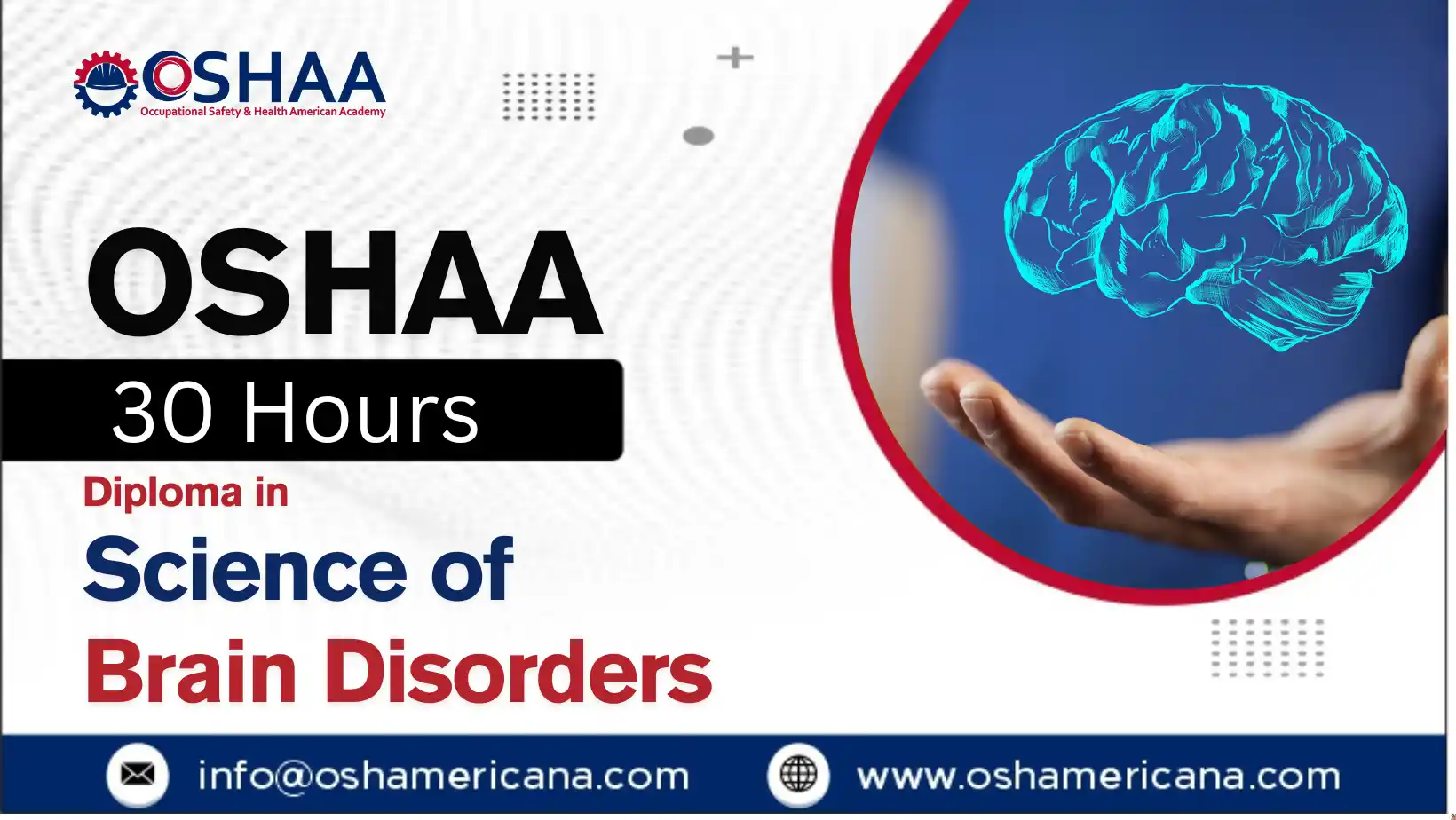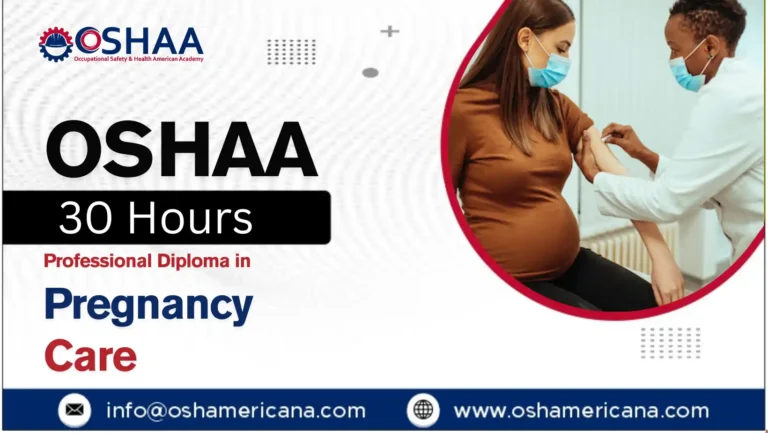Unlock Expert Knowledge with the Brain Disorders Diploma
The human brain is an intricate and fascinating organ, and studying disorders that affect its structure and function presents unique challenges. The OSHAA 30-Hours Professional Diploma in Science of Brain Disorders offers a comprehensive and practical understanding of both neurological and psychiatric conditions. With millions affected globally, this diploma equips participants with the knowledge needed to understand, analyse, and support individuals living with brain-related disorders.
The course covers the biological basis of brain function, diagnostic criteria, and evidence-based therapeutic approaches for a wide range of conditions, including neurodevelopmental, neurodegenerative, and mental health disorders. Participants will gain insights into how these conditions develop, how they are diagnosed, and the interventions available to improve outcomes.
Beyond clinical knowledge, the diploma emphasises the broader impact of brain disorders on individuals, families, and healthcare systems. Learners will develop skills to interpret symptoms, understand underlying brain mechanisms, and apply this understanding to inform effective support strategies.
Ideal for healthcare professionals, psychologists, neuroscientists, and students, the OSHAA 30-Hours Professional Diploma in Science of Brain Disorders combines rigorous academic content with practical relevance, empowering participants to confidently engage in clinical, educational, and research settings.
OSHAA 30-Hours Professional Diploma in Science of Brain Disorders
Study Units
Learning Outcomes
Introduction to Brain Structure and Neurological Function (3 Hours)
- Identify the primary regions of the brain and their associated cognitive and physiological functions
- Explore how neurons communicate and how brain systems interact
- Recognise the relevance of neurological structures to common brain disorders
Neurodevelopmental Disorders: Autism, ADHD, and Learning Disabilities (3 Hours)
- Understand the defining features and diagnostic criteria of major neurodevelopmental disorders
- Explore the neurological and genetic factors associated with autism, ADHD, and learning difficulties
- Identify common behavioural, cognitive, and social challenges associated with these conditions
- Examine evidence-based approaches to assessment, intervention, and support
Mood and Anxiety Disorders: Depression, Bipolar Disorder, and Generalised Anxiety (4 Hours)
- Understand the neurological and psychological basis of mood and anxiety disorders
- Identify key symptoms, diagnostic classifications, and risk factors
- Explore the role of neurotransmitters, stress, and environment in mood regulation
- Examine pharmacological and psychotherapeutic treatment options
Schizophrenia and Other Psychotic Conditions (5 Hours)
- Understand the symptoms, subtypes, and diagnostic framework of schizophrenia and related disorders
- Explore the neurochemical, structural, and cognitive theories behind psychosis
- Identify early warning signs, relapse indicators, and impact on daily functioning
- Analyse current treatments and challenges in long-term management
- Examine the social and psychological effects of stigma and misperception
Neurodegenerative Diseases: Alzheimer’s, Parkinson’s, and Huntington’s (4 Hours)
- Understand the causes and progression of major neurodegenerative disorders
- Identify the clinical signs and symptoms of cognitive and motor decline
- Explore the role of genetics, protein misfolding, and neural degradation
- Evaluate available treatments, care strategies, and quality of life considerations
Traumatic Brain Injury and Post-Concussive Syndromes (6 Hours)
- Understand the mechanisms and types of traumatic brain injury (TBI)
- Identify symptoms of mild to severe brain trauma, including cognitive and behavioural impacts
- Explore short-term and long-term effects of concussion and post-concussive syndromes
- Examine rehabilitation approaches, recovery factors, and neuroplasticity in healing
- Analyse preventative measures and challenges in diagnosis and treatment
Epilepsy and Seizure Disorders (2 Hours)
- Understand the neurological basis and types of seizure disorders
- Identify triggers, symptoms, and phases of epileptic episodes
- Explore diagnostic tools such as EEG in epilepsy assessment
- Examine treatment options including medication, surgery, and lifestyle adaptations
Diagnostic Tools in Neurology and Psychiatry (3 Hours)
- Identify key neurological and psychiatric diagnostic tools including MRI, CT, PET, EEG, and psychological assessments
- Understand how brain imaging and neuropsychological testing support diagnosis and treatment planning
- Evaluate the benefits and limitations of various diagnostic technologies
- Explore how diagnostic findings inform personalised care and intervention strategies
Course Benefits – OSHAA 30-Hours Professional Diploma in Science of Brain Disorders
- Provides a clear and structured understanding of major neurological and psychiatric disorders
- Equips participants with foundational knowledge of brain anatomy and function in relation to clinical conditions
- Enhances the ability to recognise symptoms, assess behavioural indicators, and understand diagnostic procedures
- Develops awareness of the biological, psychological, and environmental factors influencing brain health
- Supports evidence-based practice by introducing current treatments and therapeutic interventions
- Increases confidence in applying neuroscience knowledge in healthcare, education, and support settings
- Prepares participants for further academic or professional development in neuroscience, psychology, or mental health care
- Encourages critical thinking about research findings, stigma, and the social impact of brain disorders
- Strengthens professional profiles with a recognised qualification in a high-impact area of healthcare and science
- Facilitates more informed support for individuals affected by neurological and psychological conditions across various settings
This course is designed for participants who wish to gain a deeper understanding of neurological and psychiatric conditions, their causes, symptoms, and impact on individuals and society. It is especially suited for:
- Healthcare professionals seeking to broaden their knowledge of brain disorders in clinical practice
- Mental health practitioners and support workers looking to enhance their understanding of neurobiological conditions
- Psychology graduates and educators interested in the neurological basis of learning and behaviour
- Social care providers working with individuals affected by neurodevelopmental or neurodegenerative disorders
- Participants preparing for further studies in neuroscience, clinical psychology, or neurorehabilitation
- Individuals with a personal or professional interest in understanding brain health, diagnosis, and intervention
This diploma supports participants from both clinical and non-clinical backgrounds who aim to apply neuroscience-informed knowledge to their work or future academic paths.







